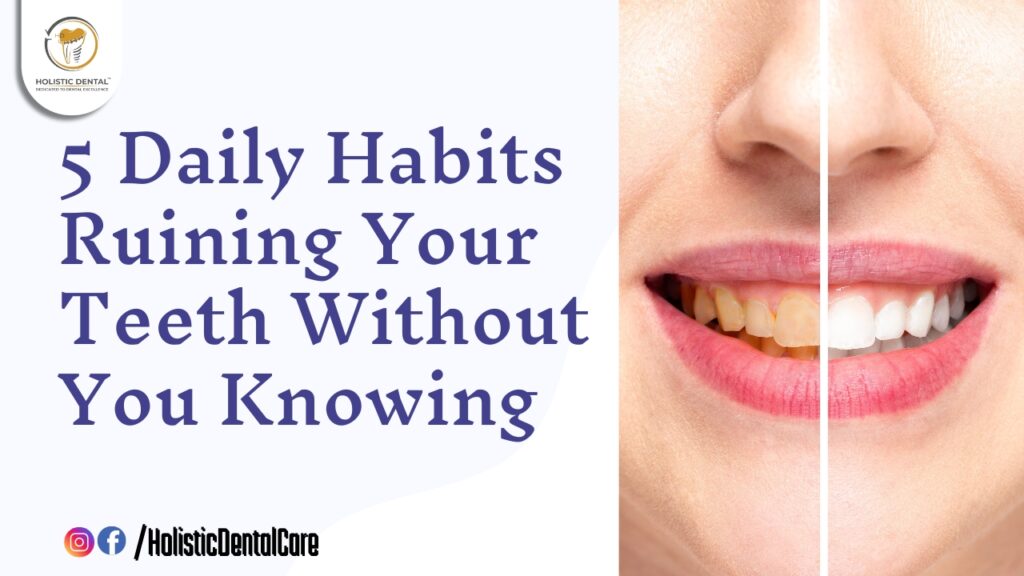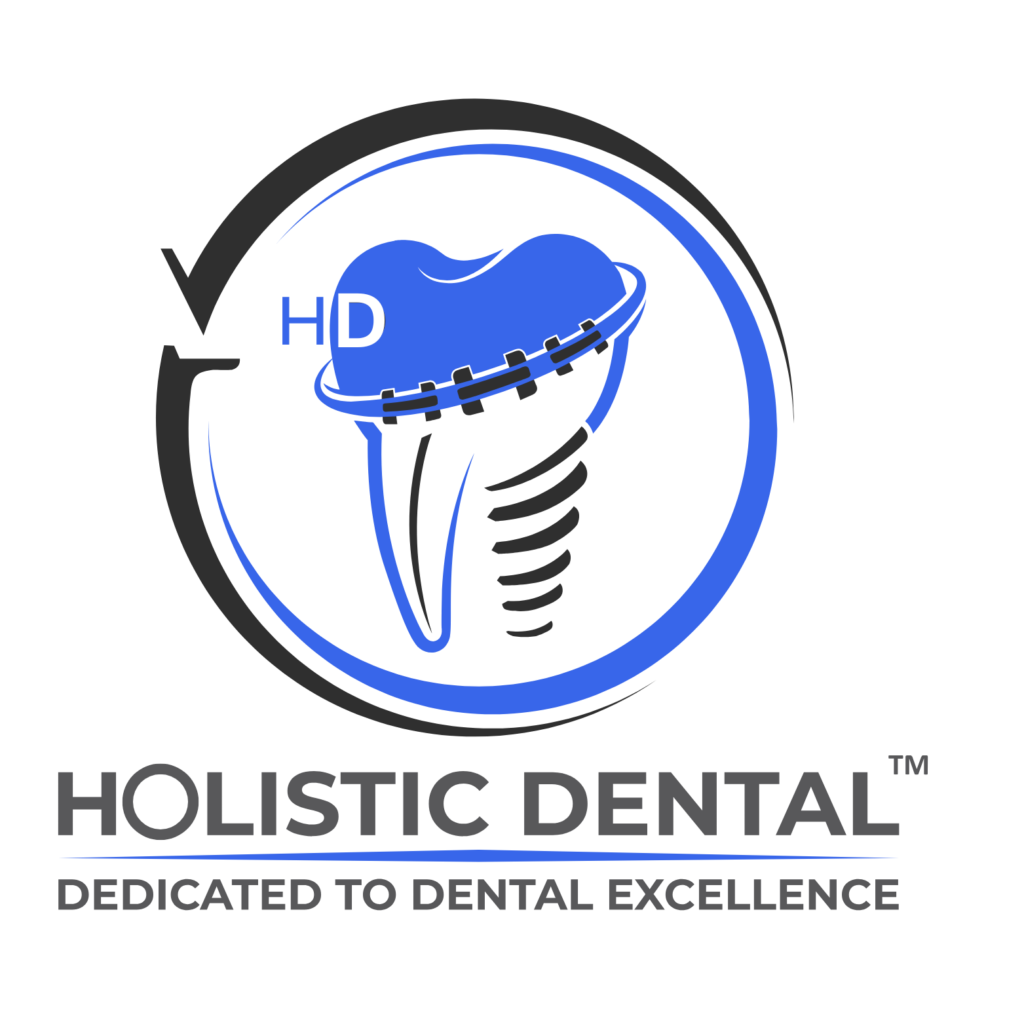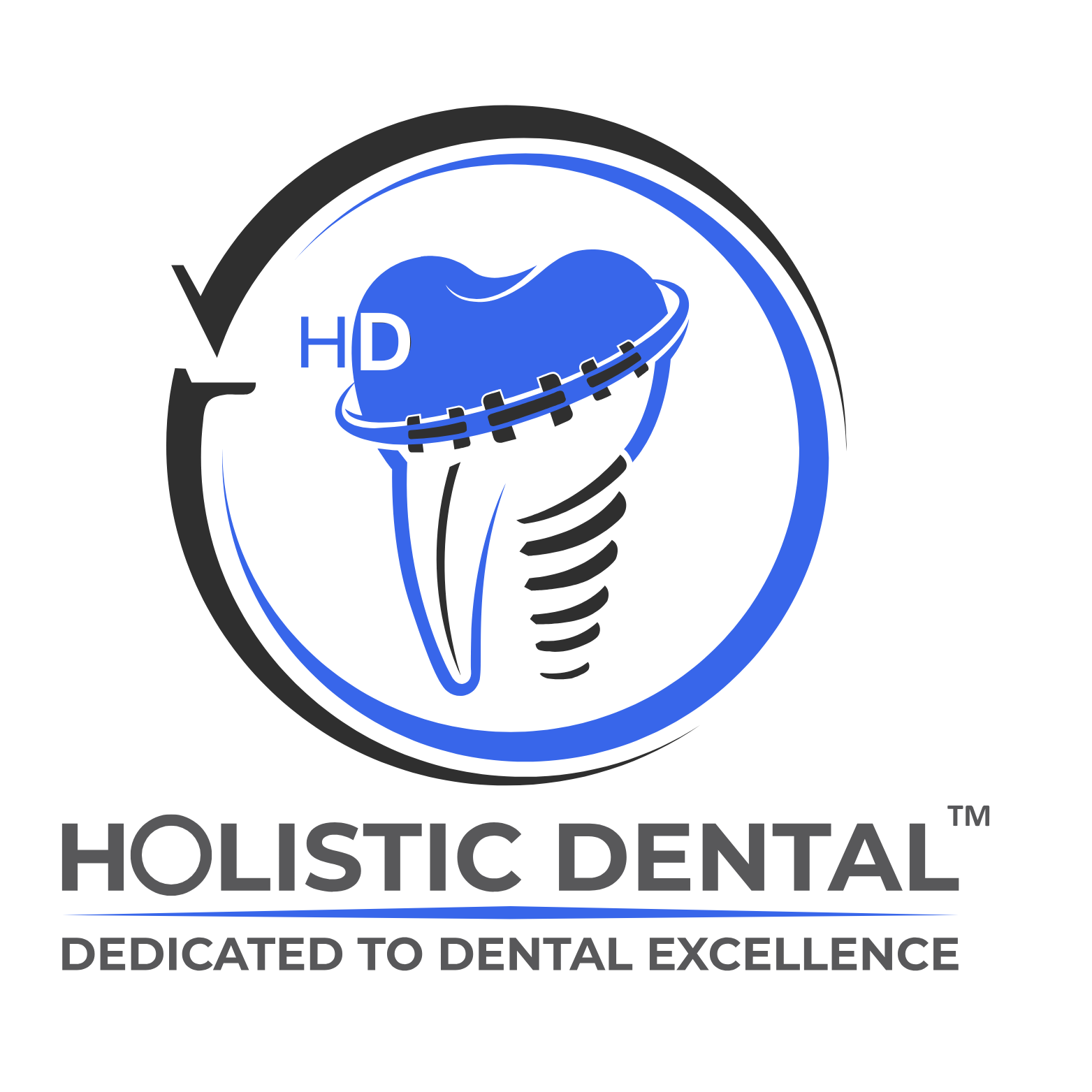- +91 77888 64446
- A 241,Upper Ground Floor, Supermart 1, DLF Phase 4, Gurugram, India

5 Daily Habits Ruining Your Teeth Without You Knowing
Most people believe they’re doing enough to protect their teeth—brushing twice a day, maybe even flossing. But despite our best efforts, small daily actions can quietly sabotage oral health. According to 2025 dental surveys and expert insights, many common habits cause long-term enamel damage, cracks, and even gum recession—often without any immediate symptoms. These are habits that are likely to go unnoticed because they do not cause pain initially, but the damage, over time, can be expensive and irreparable.
Chewing on hard things such as ice, pens, or fingernails is one of the most destructive habits. Although it appears harmless, it can lead to microfractures in your enamel. Eventually, those small cracks develop into bigger ones and can result in chipped or broken teeth. A 2025 American Dental Council report reported that close to 26% of chipped teeth in adults were caused by chronic hard-object chewing, which is often done unconsciously. Dentists advise one to substitute this with crunchy vegetables or sugar-free gum to prevent long-term damage.
Biting your nails is another sneaky culprit. Ripping open snack packages, pulling out clothing labels, or even opening bottle tops with your teeth might be convenient, but it puts unnatural stress on the edge of the tooth. Enamel is tough, but not invincible—constant pressure like this can cause enamel loss or, worse, cracked crowns and fillings. In reality, emergency dental appointments because of cracked restorations from “non-eating” reasons jumped 14% from 2023 to 2025, based on data from U.S. dental insurance.
Brushing your teeth can feel like a surefire good thing—but brushing too hard or too soon after meals can do more harm than good. If you brush immediately after eating acidic foods or beverages like coffee, soda, or citrus, you can be eroding softened enamel with your brush. And brushing hard with a hard-bristled brush wears them down and gums too. Dentists in 2025 now commonly advise waiting a minimum of 30 minutes since eating and brushing with a soft-bristled brush using gentle circular motions. It feels less thorough, but it’s much better protecting in the long run.
Another behaviour that still harms teeth is grinding them, also bruxism. It tends to occur while sleeping or when under stress, so it is hard to control. Though it may not have noticeable symptoms at first, it leads to teeth flattening, cracks, jaw ache, and even headaches. Current research indicates that one out of three adults tends to grind their teeth on a frequent or occasional basis—a surge possibly attributed to post-pandemic anxiety. Dentists typically prescribe individual night guards or recommend stress-relief strategies such as mindfulness and restricted use of caffeine in the evening to minimize grinding.
Lastly, snacking constantly or drinking acidic drinks during the day keeps your mouth under attack all the time. Every time you snack or drink soda, coffee, or fruit juice, you subject your teeth to acid that dissolves enamel. This keeps your saliva from bringing back a normal pH balance and primes your mouth for cavities. According to a 2025 study of health behaviours, individuals who sipped acidic beverages all day at work had 2.3 times the incidence of enamel wear compared to those who drank them in one sitting. Replacing acidic drinks with water and cutting snacking can make a big difference.
Though all of these habits are less than obvious compared to avoiding dental cleanings, their long-term effects on your teeth can be equally as destructive. The secret to protecting your smile isn’t necessarily what you do right—it’s also about what you don’t do wrong. Small changes in behaviour—such as using tools rather than your teeth, waiting to brush until after you’ve eaten, and noticing stress grinding—can help save your enamel, lessen your chances of cracking and cavities, and avoid expensive dental fixes later on. Prevention, as always, is cheaper—and much less painful—than treatment.

